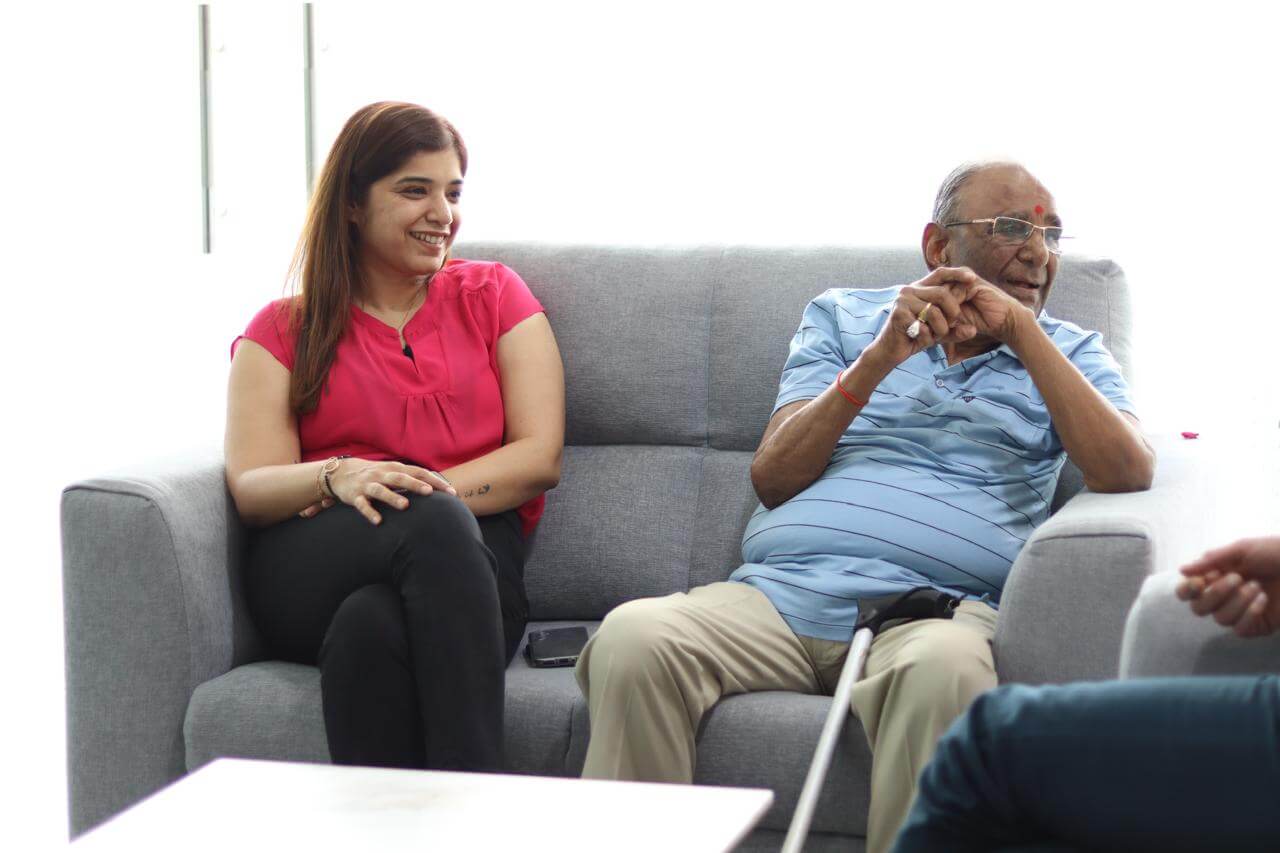
FAQs
Frequently asked questions related to senior and assisted Living.
1. What is Assisted Living and how is it different from a nursing home?
Ans: Assisted living is a long-term residential option designed for older adults, providing a blend of housing, medical, nursing, personal, and supportive services all under one roof. It fosters social connections and offers assistance with daily activities, meals, housekeeping, recreational activities, and medical services. This option is ideal for seniors who are largely independent but benefit from some help with everyday tasks in a community-oriented environment.
Nursing homes offer a higher and more consistent level of care, often available round-the-clock. Services in nursing homes include medication administration, mobility assistance, frequent medical care, and access to doctors. These facilities are more clinical and focus on providing 24-hour support for those needing ongoing, intensive care. While nursing homes also encourage social interactions among residents, their primary focus is medical care.
2. What types of living arrangements and room options are available in Assisted Living?
Ans: The specific room and living options available can vary between different assisted living facilities. It’s important to consider your preferences and needs when choosing an assisted living community and the type of living arrangement that will work best for you.
The living spaces are designed to be home-like and promote independence. Residents can choose between having their private room, Twin Sharing, or sharing a Spouse in any other Known Person’s room with another resident.
3. What care services and amenities are included in the monthly fee?
Ans: The monthly fee for assisted living typically covers the following care services and amenities:
- Private or shared rooms.
- Utilities (heat, AC, electricity)
- Maintenance and housekeeping services
- Laundry service.
- Social, fitness, cultural, and other activities
- 24-hour staffing and assistance with activities of daily living (ADLs) like bathing, dressing, grooming
- Medication management
- 3-4 meals per day
Additional services that may be included or available for an extra fee:
- Transportation to medical appointments and outings.
- Personal laundry service.
- Beauty salon services.
- Personal Caregivers and GDAs and reminders for meals and activities
The specific services and amenities covered in the monthly fee can vary.
4. Is there staff available 24/7 to assist residents if needed?
Ans: Yes, assisted living facilities typically have staff available 24/7 to assist residents whenever needed. The staff is trained to provide personal care, support with daily activities, and respond to emergencies around the clock.
The availability of 24-hour staffing is a key benefit of assisted living, as it provides seniors with the support they need while still allowing them to maintain a level of independence. Residents and their families can have peace of mind knowing trained caregivers are always accessible if assistance is required day or night
5. How do you determine the right level of care for a resident?
Ans: A qualified professional conducts a thorough needs assessment, to determine the right level of care for a resident. The assessment evaluates various factors to identify the resident’s specific needs and abilities, including:
- Physical condition and medical needs
- Mental health status
- Mobility level
- Ability to perform activities of daily living (ADLs) like bathing, dressing, eating
- Dietary requirements
- Need for nursing care and supervision
- Degree of support required for daily activities
The assessment ranks the resident’s capabilities and needs in each area. The final determination of the appropriate level of care reflects the resident’s overall health status and degree of required assistance.
6. What is the staff-to-resident ratio?
Ans: There is no universal standard for the ideal staff-to-resident ratio, but most experts recommend a minimum of one caregiver for every six to seven residents in a day time and twelve to thirteen during night time. Some key points about staff-to-resident ratios in assisted living:
- The ratio may vary depending on the time of day and the level of care required by residents
- Sufficient staffing is crucial for providing individualized care, meeting residents’ needs promptly, and maintaining safety
- Low ratios can lead to delays in care, neglect, increased resident stress, poor hygiene, malnutrition, and medication errors
- Adequate staffing enables more engagement with residents, which promotes their well-being and prevents isolation
- Higher ratios allow for quicker emergency response times and reduced accidents.
The staff-to-resident ratio is a key factor in choosing an assisted living community, as it directly impacts the quality of care and quality of life for residents. Facilities with higher ratios are better equipped to meet residents’ needs and provide a safe, engaging environment.
7. What training does the caregiving staff receive?
Ans: Assisted living facilities provide comprehensive training programs for their caregiving staff to ensure they have the necessary knowledge and skills to provide high-quality care to residents.
Emergency response, including first aid, fire safety, and responding to medical emergencies. Person-centered care focuses on understanding and meeting the individual needs and preferences of each resident Safeguarding and identifying and reporting signs of abuse or neglect. Food safety and providing safe, nutritious meals. Medication management, including understanding medications, dosage calculations, and proper storage and handling.
The training covers a wide range of topics and is tailored to the specific roles and responsibilities of each staff member.
8. Can residents have a car or access transportation services?
Ans: Yes, assisted living residents typically have access to transportation services provided by the facility, and in some cases may be able to have their car. Some facilities offer on-demand transportation for additional fees, such as taxis/cabs service or rides to special events.
9. What dining options are available and can special diets be accommodated?
Ans: Assisted living facilities typically offer full-service dining with breakfast, lunch, and dinner prepared by chefs, servers, and dieticians. Menus feature seasonal items and cater to all diet restrictions, ensuring residents have access to nutritious meals without the hassle of cooking.
10. What social, recreational, and exercise activities are offered?
Ans: Assisted living facilities offer a wide variety of social, recreational and exercise activities to keep residents engaged, active, and entertained, including various classes, book clubs, game nights, holiday parties, outings to local restaurants and attractions, arts and crafts, group exercise classes like yoga and mindfulness activities, walking clubs, meditation, dance classes, and field trips to local parks and attractions, all designed to promote physical, mental, social and emotional well-being among Seniors and create a vibrant, fulfilling lifestyle for seniors to stay active, socially connected and mentally engaged.
11. What is the difference between assisted living and memory care?
Ans: Assisted living provides support with daily living activities for relatively independent seniors, while memory care is a specialized form of assisted living designed for individuals with Alzheimer’s or dementia, offering additional safety features, 24/7 monitoring, and staff trained to handle unique challenges and behaviors associated with memory loss.
12. How are medical needs handled – is there an on-site clinic or physician?
Ans: Assisted living facilities typically do not have an on-site clinic or physician but assist residents in arranging primary medical care with their healthcare providers.
Emergency call systems are in place for quick response to medical emergencies, and residents can access on-demand transportation services for medical appointments. Assisted living serves as a supportive option for residents recovering from illness or injury, providing a bridge between hospital care and returning home, ensuring residents have access to necessary healthcare services while maintaining independence and quality of life.
13. What security measures are in place to ensure resident safety?
Ans: Assisted living facilities ensure resident safety through measures like 24/7 video surveillance, electronic access control systems, fire safety protocols, and additional security features such as well-lit properties, secure storage, background checks on staff, and dedicated security personnel.
These comprehensive security measures work together to create a safe and secure environment for Seniors, promoting peace of mind and ensuring their well-being within the facility.
14. Can a resident’s room be personalized and furnished?
Ans: Residents in assisted living facilities can personalize and furnish their rooms to create a comfortable and familiar living space by bringing in their furniture, decorations, and personal items. Involving residents in the process allows them to maintain a sense of identity and feel more at home.
15. Are there any long-term contract requirements?
Ans: Assisted living contracts are required to detail services, housing arrangements, and terms, ensuring clarity for both parties. While comprehensive and transparent contracts are emphasized as a long-term contract requirement for assisted living facilities.
16. What is the guest policy for having visitors or accommodating overnight guests?
Ans: The guest policy for having visitors or accommodating overnight guests in the provided sources outlines specific guidelines for registering guests, including limitations on the number of guests, duration of stay, registration procedures, and responsibilities of the facility.
17. How are additional care needs handled if a resident’s health declines?
Ans: If a resident’s health declines in an assisted living facility, their care needs are reassessed, and the care plan is adjusted to include necessary additional services, such as more hands-on assistance or specialized memory care.
The facility ensures sufficient staff with appropriate training are available to provide the increased level of care required. If the resident’s needs exceed what the assisted living facility can safely provide, they may need to transition to a higher level of care, with the resident’s family kept informed and involved throughout the process. The goal is to enable residents to age in place for as long as possible by adapting the care plan to meet their evolving needs.
18. What is the typical monthly cost and what factors affect pricing?
Ans: The typical monthly cost for assisted living ranges from INR 70000/- to INR 150000/-. Key factors that affect pricing include location, with urban areas being more expensive than rural areas; accommodation options, with larger units and private apartments cost more; amenities offered and the level of care required, as residents needing more assistance pay higher rates. Additionally, the quality of the facility and living space, as well as any add-on services like medication management or transportation, can impact the monthly cost
19. Are there any upfront fees or deposits required to move in?
Ans: Assisted living facilities typically require upfront fees or deposits, such as the first month’s rent, Security deposit, Move-in fees, and Medical Emergency deposit to secure accommodations and cover initial costs.
20. What is the process for touring the facility or reserving a room?
Ans: To visit an assisted living facility and reserve a room, individuals typically schedule an appointment, visit the facility to assess its amenities and atmosphere, ask questions about care services and costs, evaluate the fit for the prospective resident, reserve a room by paying a deposit, and sign a contract outlining the terms of the agreement. This process allows individuals to make an informed decision when selecting an assisted living community that aligns with their needs and preferences.
